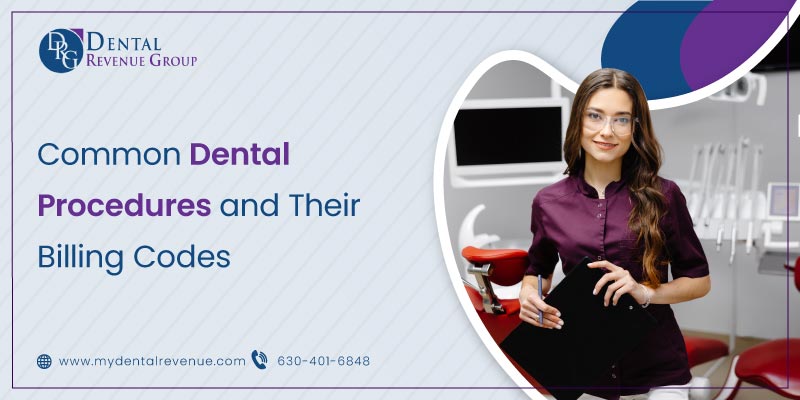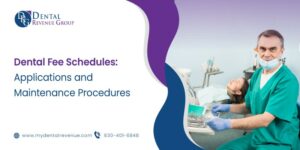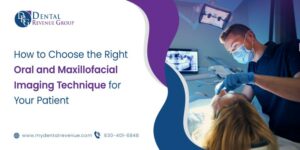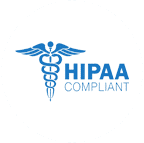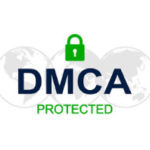Dental procedures are essential to maintain oral health and hygiene. Dental billing codes are a set of codes that are used to bill dental services to insurance companies. Dental professionals use these codes to describe dental procedures and treatments they perform. Understanding these codes is essential for accurate billing and reimbursement. Many dental practices face significant worries regarding the accuracy of dental codes in labeling various procedures for insurance purposes. Using the correct dental codes is crucial but often proves to be a complex task. This blog will discuss common dental procedures and their billing codes.
Overview Of CDT Codes
Current Dental Terminology Codes are a series of specialized medical codes specifically designed for dental and oral health procedures. Each CDT Code is a unique combination of four alphanumeric characters, beginning with the letter “D” to signify the procedure code, followed by four digits denoting the nomenclature or specific details of the procedure. Moreover, descriptive explanations accompany specific procedural codes.
These CDT Codes provide a convenient reference for dental professionals, granting them easy access to dental procedure codes whenever needed. However, despite this resource, many dentists often have questions regarding this intellectual property owned by the American Dental Association (ADA). To address and alleviate these concerns, the ADA offers a wealth of educational materials to enhance dentists’ understanding and usage of the CDT Codes.
The ADA has curated a comprehensive reference library featuring educational content on coding to support dental practitioners. The CDT codes serve as a standardized system for documenting dental procedures on the ADA claim form, categorized into 12 distinct groups based on the nature of the services provided. This table clearly summarises the CDT code categories, their corresponding code ranges, and their associated code prefixes.
| Category | Code Range | Code Prefix |
| Diagnostic | D0100-D0999 | D0 |
| Preventive | D1000-D1999 | D1 |
| Restorative | D2000-D2999 | D2 |
| Endodontics | D3000-D3999 | D3 |
| Periodontics | D4000-D4999 | D4 |
| Prosthodontics – removable | D5000-D5899 | D5 |
| Maxillofacial Prosthodontics | D5900-D5999 | D59 |
| Implant Services | D6000-D6199 | D6 |
| Prosthodontics, fixed | D6200-D6999 | D62 |
| Oral & Maxillofacial Surgery | D7000-D7999 | D7 |
| Orthodontics | D8000-D8999 | D8 |
| Adjunctive General Services | D9000-D9999 | D9 |
Common Dental Procedures Codes
Dental Exams (D0120)
A dental exam is a comprehensive oral cavity examination, including teeth, gums, and supporting tissues. This procedure is typically performed every six months or as a dentist recommends. The billing code for a dental exam is D0120.
Teeth Cleaning (D1110)
Teeth cleaning is a dental procedure that removes plaque, tartar, and stains from teeth. This procedure is recommended every six months for adults with healthy gums and teeth. The billing code for teeth cleaning is D1110.
Teeth Whitening (D9972)
Teeth whitening is a cosmetic dental procedure using peroxide-based gels or chemicals to lighten teeth’ color. This procedure is not typically covered by insurance and has no billing code. However, a standard code that is sometimes used to bill for teeth whitening is D9972.
Fillings (D2391-93)
A dental filling is a restorative procedure that repairs a tooth damaged by decay or trauma. Different fillings are available, including amalgam, composite, and gold. The billing codes for fillings are D2391, D2392, and D2393, depending on the type of material used.
Root Canal (D3310)
A root canal procedure is a dental treatment that removes the infected pulp from inside the tooth and replaces it with a filling material. This procedure relieves pain and saves teeth that would otherwise need to be extracted. The billing code for a root canal procedure is D3310.
Extractions (D7140-47)
Tooth extractions are dental procedures that remove teeth that are decayed, damaged, or impacted. There are different tooth extraction procedures, including simple and surgical extractions. The billing codes for extractions range from D7140 to D7147, depending on the type of extraction performed.
Crowns (D2740-50)
A dental crown is a prosthetic restoration that covers a damaged tooth to strengthen and restore its shape and function. The billing codes for crowns range from D2740 to D2750, depending on the type of material used.
Bridges (D6250-53)
A dental bridge is a prosthetic restoration that replaces one or more missing teeth. Bridges rely on adjacent teeth or dental implants for support. The billing codes for bridges range from D6250 to D6253, depending on the type of material used and number of teeth replaced.
CDT Dental Procedure Update Highlights (2022)
In the 2022 update of the Current Dental Terminology (CDT) by the American Dental Association (ADA), notable changes include 14 revised codes and the addition of 16 new codes covering various dental services such as pre-visit patient screening, rebasing of hybrid prostheses, and repairing and adjusting sleep apnea appliances. Six outdated codes were removed, and a dedicated section for ICD-10 codes was incorporated to enhance diagnostic and procedural coding integration. In response to the ongoing pandemic, the update introduced eight specific codes for COVID-19 testing and vaccine administration, covering molecular, antigen, and antibody testing, as well as vaccine administration for major COVID-19 vaccines (Pfizer-BioNTech, Moderna, AstraZeneca, and Johnson & Johnson). Additionally, revisions were made to certain orthodontic codes to address confusion, and recommendations were provided to improve code structure by presenting information in a clear, organized table format. These updates demonstrate a proactive approach to adapting dental coding practices to current healthcare needs while maintaining precision and clarity in coding procedures.
| Code | Description |
| D0604 | Testing for a communicable disease of public health concern, including COVID-19, using antigen detection. |
| D0605 | Antigen testing for a public health-related pathogen, such as coronavirus. |
| D0709 | Comprehensive series of radiographic images taken within the mouth, including image capture only. |
| D0707 | Radiographic image capture of an intraoral periapical view within the mouth. |
| D0706 | Radiographic image capture of an intraoral occlusal view within the mouth. |
| D0705 | Radiographic image capture of an extra-oral posterior dental view. |
| D0708 | Radiographic image capture of an intraoral bitewing view within the mouth. |
| D0701 | Radiographic image capture of a panoramic view. |
| D0702 | Radiographic image capture of a 2-D cephalometric view. |
| D0703 | Image capture of 2-D oral or facial photographs, either intraorally or extraorally. |
| D0704 | Image capture of 3-D photographs. |
| D1321 | Counseling services for the prevention and management of adverse oral, behavioral, and systemic health effects associated with high-risk substance use. |
| D1355 | Application of preventive medication per tooth. |
| D2928 | Placement of a prefabricated porcelain or ceramic crown on a permanent tooth. |
| D3471 | Surgical repair of root resorption in the anterior teeth. |
| D3472 | Surgical repair of root resorption in premolar teeth. |
| D3473 | Surgical repair of root resorption in molar teeth. |
| D3501 | Surgical exposure of the root surface without apicoectomy or root resorption repair in the anterior teeth. |
| D3502 | Surgical exposure of the root surface without apicoectomy or root resorption repair in premolar teeth. |
| D3503 | Surgical exposure of the root surface without apicoectomy or root resorption repair in molar teeth. |
| D5995 | Use a periodontal medicament carrier with a peripheral seal and laboratory processing in the maxillary area. |
| D5996 | Use a periodontal medicament carrier with a peripheral seal and laboratory processing in the mandibular area. |
| D7993 | Surgical placement of a craniofacial implant externally. |
| D7994 | Surgical placement of a zygomatic implant. |
| D6191 | Placement of a semi-precision abutment. |
Deleted Codes
D8050 and D8060 codes were deleted to eliminate confusion with Limited Orthodontic Treatment procedures, addressing the clinical similarities and redundancy issues. Code D8690, previously denoting orthodontic treatment (alternative billing to a contract fee), was also removed due to its lack of representation as a genuine medical procedure, as pointed out by the AAO.
Revised Codes
Codes D8010, D8020, D8030, and D8040 underwent language revisions for Limited Orthodontic Treatment. The updated definition clarifies that Limited Orthodontic Treatment involves a therapeutic approach on a smaller scale, applicable at any dentition stage, aiming for specific treatment objectives.
Understanding dental billing codes is essential for dental professionals and patients to ensure accurate billing and reimbursement. The codes discussed in this blog are just a few of the most common dental procedures and their respective billing codes. Dental professionals should consult with insurance companies to determine the appropriate codes for specific procedures and services. Always remember that healthy teeth and gums are worth the time and investment!

